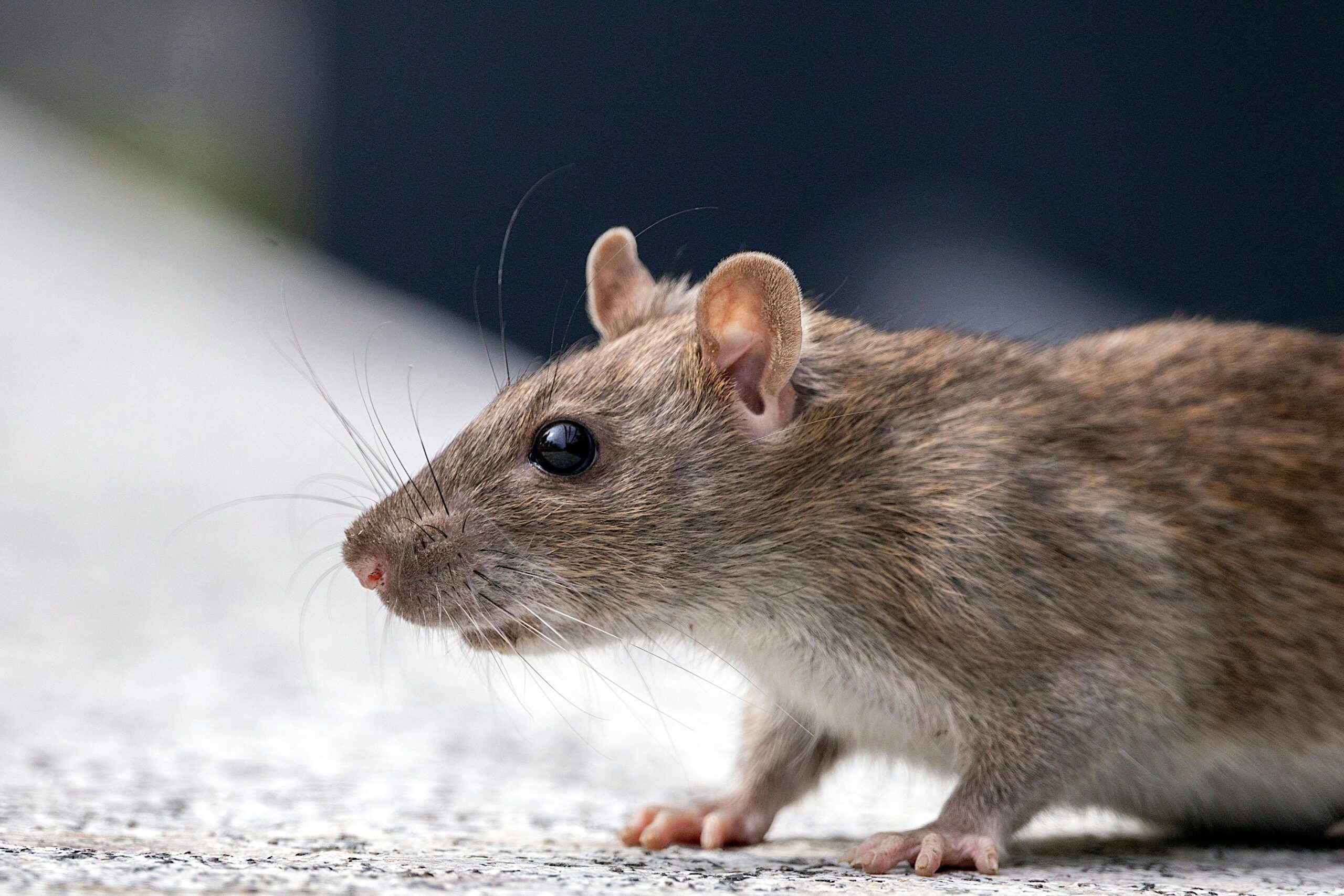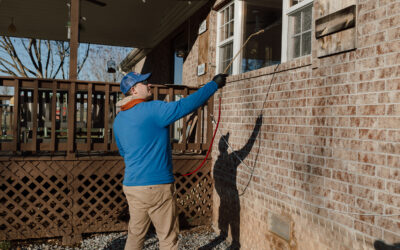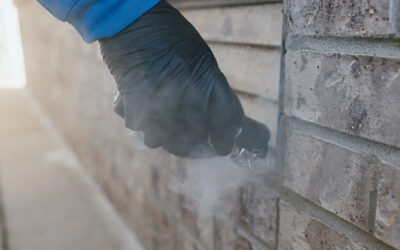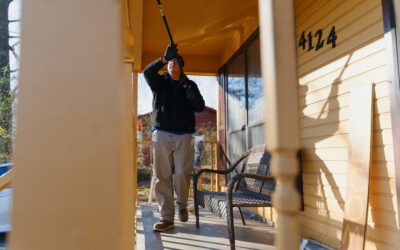
How to Prevent Rodents from Invading Your Home This Winter
As winter approaches, rodents like mice and rats actively seek warm, sheltered spaces to survive the colder months – and your home is often their first choice. Rodents pose a significant problem, not just because of the structural damage they can cause but also due to the health risks they bring. Preventing rodents from invading your home requires a combination of sealing entry points, maintaining cleanliness, and employing effective pest control strategies. In this guide, we’ll explore how to protect your home this winter and keep rodents at bay.
Understanding Rodent Behavior During Winter
Rodents are resourceful creatures that adapt their behavior based on seasonal changes. When temperatures drop, their natural food sources become scarce, and they seek shelter indoors where they can find warmth, food, and water. This instinctive behavior makes winter the peak season for rodent infestations.
Common Types of Rodents in Homes
The most common rodents that invade homes during the winter include:
- House Mice: Small, agile, and capable of fitting through tiny openings.
- Norway Rats: Larger rodents that prefer basements and ground-level spaces.
- Roof Rats: Skilled climbers often found in attics or upper levels of homes.
Understanding the types of rodents you might encounter can help you identify and implement the most effective prevention measures.
Why Rodents Are a Problem in Winter
Rodents are more than just a nuisance. They can cause significant issues that affect your home and health.
Health Risks of Rodents
Rodents can spread diseases, including:
- Hantavirus: Transmitted through rodent droppings, urine, or saliva.
- Leptospirosis: Spread through contact with contaminated water or surfaces.
- Salmonella: Found in food or surfaces contaminated by rodents.
Structural Damage Caused by Rodents
Rodents chew constantly to keep their teeth sharp, which can lead to:
- Damaged electrical wiring, increasing the risk of house fires.
- Gnawed wooden structures and insulation.
- Contaminated food storage areas.
These risks make it essential to address rodent problems before they escalate.
Comprehensive Strategies to Prevent Rodents This Winter
Inspect and Fortify Your Home’s Exterior
The first step in preventing rodents is ensuring they cannot enter your home. Rodents can squeeze through openings as small as a dime, so a thorough inspection of your home’s exterior is crucial.
Steps to Fortify Your Home:
- Seal Cracks and Holes: Use caulk, steel wool, or a combination of both to block potential entry points.
- Inspect Doors and Windows: Replace damaged weather stripping and install door sweeps to close gaps.
- Check Utility Lines and Pipes: Seal gaps around plumbing, HVAC lines, and electrical conduits.
- Inspect the Roof and Attic: Repair broken shingles and ensure vents are covered with mesh screens.
Declutter and Organize Interior Spaces
Rodents thrive in cluttered environments where they can hide and build nests. Reducing clutter inside your home makes it less appealing to them.
Tips for Indoor Maintenance:
- Organize storage areas like basements, attics, and garages.
- Store items in sealed plastic bins rather than cardboard boxes, which rodents can chew through.
- Regularly vacuum and clean areas prone to crumbs, such as under furniture and appliances.
Maintain a Clean Kitchen
The kitchen is one of the primary targets for rodents, as it provides easy access to food and water. Keeping it clean and organized can help deter them.
Kitchen Cleaning Checklist:
- Store all food in airtight containers.
- Clean up spills and crumbs immediately.
- Empty trash bins daily and use bins with tight-fitting lids.
- Avoid leaving pet food out overnight.
Outdoor Prevention Measures
Yard Maintenance
An untidy yard can attract rodents, providing them with places to hide and easy access to your home.
Actions to Take:
- Trim trees and shrubs away from your home’s walls.
- Rake leaves and remove yard debris.
- Store firewood at least 20 feet from your home and keep it elevated off the ground.
Secure Compost and Trash Areas
Outdoor trash and compost bins can be a major attraction for rodents if not managed properly. Make sure bins are tightly sealed and kept away from your home. If you compost, use a rodent-proof bin and avoid adding meat or greasy foods.
Professional Pest Control: A Long-Term Solution
While DIY measures are effective, professional pest control services provide long-term solutions tailored to your home’s specific needs. Pest control experts can:
- Conduct a thorough inspection to identify potential vulnerabilities.
- Apply safe and effective rodent control treatments.
- Offer ongoing maintenance and monitoring services to prevent future infestations.
The Benefits of Professional Pest Control
- Expertise in identifying rodent species and their behavior.
- Access to advanced tools and treatments not available to homeowners.
- Peace of mind knowing your home is protected year-round.
FAQs About Preventing Rodent Infestations
How often should I inspect my home for rodents?
You should inspect your home for signs of rodents and potential entry points at least twice a year – once in the fall before winter starts and again in the spring.
What are the first signs of a rodent infestation?
Common signs include droppings, gnawed furniture or wires, scratching noises in walls or ceilings, and unusual odors.
Are natural repellents effective against rodents?
Natural repellents like peppermint oil and vinegar can be helpful for deterring rodents but are not as effective as sealing entry points or using traps.
Can rodents cause long-term damage to my home?
Yes, rodents can cause significant structural damage by chewing through wires, insulation, and wood, which can lead to costly repairs.
Protect Your Home This Winter with West Termites & Pest
Preventing rodents from invading your home requires consistent effort, especially during the winter months when they’re most likely to seek shelter indoors. By sealing entry points, maintaining cleanliness, and employing outdoor prevention measures, you can reduce the risk of an infestation. For complete peace of mind, professional pest control services provide the expertise and tools needed to protect your home.
At West Termite & Pest, we specialize in pest control, termite control, and lawn care services across Arkansas and Oklahoma. Our experienced team offers free consultations and customized solutions to keep your home rodent-free this winter. Contact us today to ensure your family’s safety and comfort throughout the season.
Call your local West Termite location or fill out the form
on our contact page to schedule your inspection today!
More posts from West Termite, Pest & Lawn
Pestproofing Entry Points Before Spring
As spring approaches in Arkansas, homeowners face an increased risk of pests seeking warmth, food, and shelter. Many infestations begin with small, unnoticed entry points that allow insects, rodents, and other pests to move indoors. Pestproofing your home before the...
Early Spring Termite Activity in Arkansas
As Arkansas begins to warm in early spring, homeowners may assume termites remain dormant until the summer months. In reality, spring termite colonies can become active much earlier, especially as soil temperatures rise and moisture levels increase. Subterranean and...
Preparing Your Home for Early Spring Pests
As winter fades and temperatures rise in Arkansas, homes become vulnerable to a fresh wave of early spring pests. Early spring is a critical time to take preventive action because insects, rodents, and other pests start emerging from dormancy, seeking food, warmth,...



